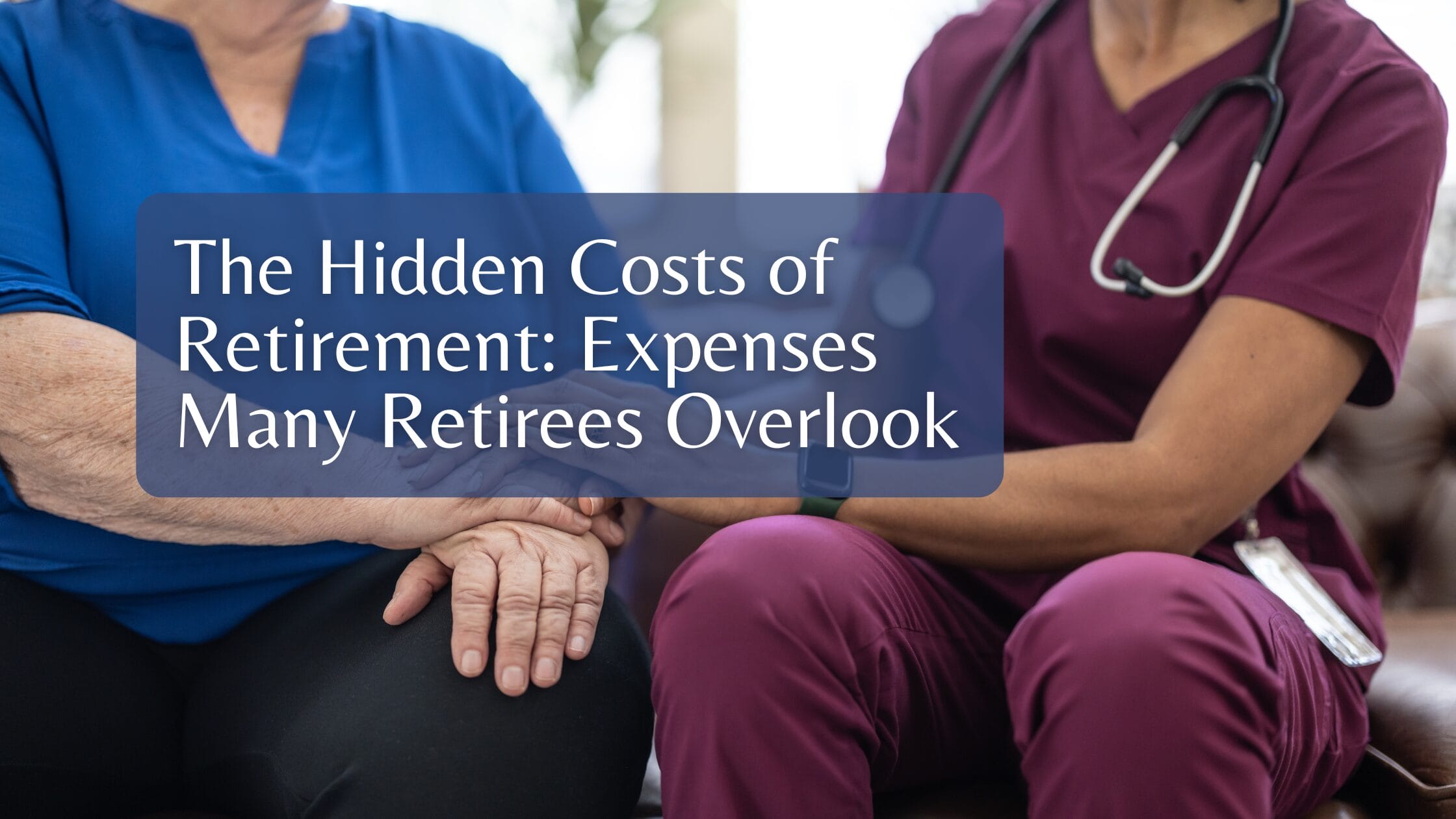The Hidden Costs of Retirement: Expenses Many Retirees Overlook

Do you think your spending in retirement will be the same, more, or less than what it is now? Like many financial planning questions, there’s no one-size-fits-all answer. Even with a well-prepared budget, it’s crucial not to overlook some key factors that can significantly impact your retirement expenses.
Inflation
Inflation erodes the purchasing power of your nest egg over time. If you leave your money sitting in cash, it’s similar to stashing it under the mattress—over time, you’ll lose ground. While current interest rates on cash might look appealing, they won’t keep up with inflation in the long run. Your retirement savings need to be invested wisely to stay ahead of inflation.
Healthcare Costs
Medicare: Many retirees mistakenly believe Medicare will cover all their healthcare costs. While Medicare Part A (hospital coverage) is “free” (funded by the 1.45% Medicare tax paid during your working years), you’ll still need to pay for Medicare Part B (doctor coverage) and Part D (prescription drugs). Plus, there are out-of-pocket expenses like co-pays and deductibles, which tend to inflate at more than twice the rate of other living expenses.
Long-Term Care: At some point, you may no longer be able to live independently in your home. In Georgia, a private room in a nursing home costs an average of $91,250 per year. If your portfolio allows, plan to self-insure against this risk or explore long-term care insurance. The optimal time to purchase long-term care insurance is around age 50, so don’t wait until it’s too late.
Evolving Lifestyle
Travel Costs: It’s a good idea to allow more flexibility for travel expenses in the early years of retirement, often referred to as the “go-go years.” During these years, couples are more likely to travel, whether for sightseeing or visiting family and friends.
Home Maintenance: As you age, tackling home improvement projects yourself may no longer be feasible—or safe. Hiring professionals for repairs and maintenance can become a significant ongoing expense, so plan for these additional costs as part of your retirement budget.
Unexpected Expenses
Retirement doesn’t mean you no longer need an emergency savings fund. In fact, it’s even more critical because you’re no longer actively earning and saving. Set aside at least six months’ worth of living expenses in cash to avoid having to sell investments at a potentially bad time due to an unexpected financial need.
Taxes
During your working years, the focus was likely on saving money in pre-tax retirement accounts. However, when you begin taking distributions from those accounts in retirement, you’ll owe ordinary income tax on those withdrawals. Additionally, when you reach a certain age, you must take Required Minimum Distributions (RMDs) from traditional IRAs and 401(k)s. Having a well-thought-out tax strategy for withdrawals in retirement is essential for managing your tax burden.
Technology Expenses
Technology is evolving quickly, and staying connected can be expensive. Don’t forget to budget for the ongoing costs of computers, smartphones, internet service, and software, all of which are essential in today’s world.
Plan Strategically for the Hidden Costs
While you can’t predict every future expense to the penny, you can look at trends and build a plan. By going into retirement with a clear budget and a well-thought-out strategy, you’ll increase your chances of making your resources last throughout your lifetime.
Have questions? Feel free to contact us.
Missie Beach, CFP®, CDFA®
Senior Financial Advisor, Wiser Wealth Management
Share This Story, Choose Your Platform!
Wiser Wealth Management, Inc (“Wiser Wealth”) is a registered investment adviser with the U.S. Securities and Exchange Commission (SEC). As a registered investment adviser, Wiser Wealth and its employees are subject to various rules, filings, and requirements. You can visit the SEC’s website here to obtain further information on our firm or investment adviser’s registration.
Wiser Wealth’s website provides general information regarding our business along with access to additional investment related information, various financial calculators, and external / third party links. Material presented on this website is believed to be from reliable sources and is meant for informational purposes only. Wiser Wealth does not endorse or accept responsibility for the content of any third-party website and is not affiliated with any third-party website or social media page. Wiser Wealth does not expressly or implicitly adopt or endorse any of the expressions, opinions or content posted by third party websites or on social media pages. While Wiser Wealth uses reasonable efforts to obtain information from sources it believes to be reliable, we make no representation that the information or opinions contained in our publications are accurate, reliable, or complete.
To the extent that you utilize any financial calculators or links in our website, you acknowledge and understand that the information provided to you should not be construed as personal investment advice from Wiser Wealth or any of its investment professionals. Advice provided by Wiser Wealth is given only within the context of our contractual agreement with the client. Wiser Wealth does not offer legal, accounting or tax advice. Consult your own attorney, accountant, and other professionals for these services.





